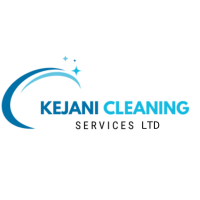In an increasingly uncertain world, emergency preparedness has become a critical aspect of organizational planning. From natural disasters to health emergencies, being prepared can save lives, minimize damage, and ensure business continuity. While many organizations focus on communication plans, evacuation routes, and stockpiling essential supplies, one often overlooked but vital component is office cleaning. A clean and organized workplace can significantly impact how effectively an organization responds to emergencies. In this blog post, we’ll explore the role of office cleaning in emergency preparedness and how it contributes to a safer, more resilient work environment.
Why Office Cleaning Matters in Emergency Preparedness
1. Health and Safety
A clean office environment is fundamental to the health and safety of employees. In the event of a health crisis, such as a pandemic, maintaining high standards of cleanliness can prevent the spread of infectious diseases. Regular disinfection of high-touch surfaces, such as doorknobs, keyboards, and communal areas, reduces the risk of contamination. Moreover, a well-maintained HVAC system can improve air quality, further safeguarding employees’ health.
2. Minimizing Fire Hazards
Clutter and accumulated waste can be significant fire hazards. Paper piles, cardboard boxes, and dust can easily catch fire and exacerbate the situation during an emergency. Regular office cleaning, including proper waste disposal and decluttering, reduces these risks. Ensuring that emergency exits and pathways are free from obstructions can also facilitate a quicker and safer evacuation.
3. Enhancing Response Efficiency
In an emergency, every second counts. A well-organized and clean office can enhance response efficiency. For example, clear labeling and proper storage of emergency supplies make them easily accessible when needed. Additionally, clean and organized workspaces can help employees locate essential documents and equipment quickly, minimizing delays during evacuation or shelter-in-place scenarios.
Best Practices for Emergency-Ready Office Cleaning
1. Regular Cleaning Schedule
Establish a consistent cleaning schedule that includes daily, weekly, and monthly tasks. Daily tasks should focus on high-traffic areas and surfaces, while weekly and monthly tasks can include office deep cleaning and maintenance. Ensure that cleaning staff are trained and equipped with the necessary tools and knowledge to perform their duties effectively.
2. Emergency-Specific Cleaning Protocols
Develop specific cleaning protocols for different types of emergencies. For instance, in the event of a flu outbreak, increase the frequency of disinfecting high-touch surfaces. In the case of a natural disaster, prioritize cleaning areas prone to flooding or structural damage. Tailoring cleaning procedures to the nature of the emergency can prevent further complications.
3. Collaboration with Emergency Management Teams
Office cleaning should not operate in isolation. Collaborate with your organization’s emergency management teams to align cleaning practices with overall preparedness plans. Regularly update cleaning protocols based on the latest guidelines and regulations from health and safety authorities. Communication and coordination ensure that everyone is on the same page and ready to respond effectively.
The Psychological Impact of a Clean Workplace
A clean and organized office environment does more than just improve physical safety; it also positively impacts employees’ psychological well-being. During emergencies, anxiety and stress levels can spike. A tidy and hygienic workplace can provide a sense of normalcy and control, helping employees feel safer and more focused. This, in turn, can improve their ability to respond to emergencies calmly and efficiently.
The Role of Professional Cleaning Services
While some organizations may have in-house cleaning staff, others may rely on professional cleaning services. Hiring professional office cleaners can be particularly beneficial in emergency preparedness. These experts are trained in the latest cleaning techniques and can provide specialized services, such as biohazard cleanup, that may be required during certain emergencies. Additionally, professional cleaning companies often have access to industrial-grade cleaning equipment and supplies, ensuring a higher standard of cleanliness.
Conclusion
Incorporating office cleaning into your organization’s emergency preparedness plan is not just a matter of maintaining a pleasant work environment; it’s a critical component of ensuring health, safety, and efficiency during emergencies. From reducing health risks to minimizing fire hazards and enhancing response times, a clean office can significantly impact your organization’s resilience. By prioritizing cleanliness and hygiene, you’re not just protecting your physical assets but also safeguarding the well-being of your employees.
As we continue to navigate an unpredictable world, it’s essential to recognize that preparedness extends beyond traditional emergency plans. A clean and organized workplace can be a silent yet powerful ally in your organization’s emergency response efforts. So, the next time you think about emergency preparedness, don’t forget to include office cleaning in your checklist.

0 Comments